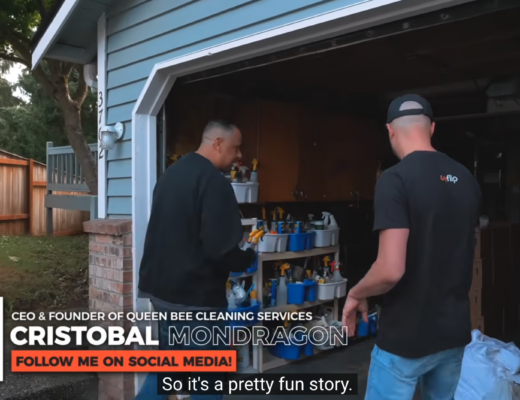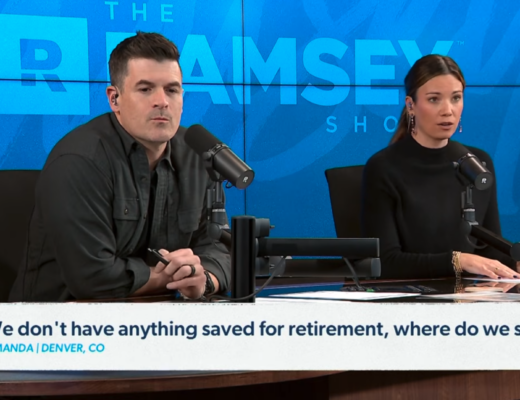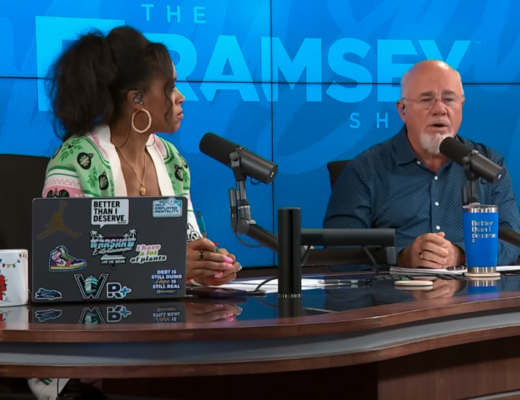I recently listened to a call on The Ramsey Show that perfectly illustrates why financial decisions made from fear often lead to disaster. The caller, Sarah, had trapped herself in a classic financial nightmare that I see all too often in my work reviewing personal finance strategies. Sarah’s situation is painfully familiar: She owned a condo in Seattle with a $2,300 monthly payment. Fearing she’d get priced out of the Florida market where she eventually wanted to move, she panicked and purchased a second home there—at the top of her budget. The new mortgage? A staggering $4,000 monthly. The property sat vacant for 13 months before she finally found a tenant paying $2,700—still leaving her $1,300 short each month. With a take-home pay of $8,600 monthly, she’s hemorrhaging money on a property she doesn’t even live in.
The Psychology of Financial Fear
What struck me most about Sarah’s call was how fear drove both her initial poor decision and her reluctance to correct it. She purchased because she was afraid of future price increases. Now she’s worried about selling because she doesn’t want to face her losses.
This is a pattern I see repeatedly when analyzing financial mistakes. We make decisions based on emotional reactions rather than sound financial principles, then compound those errors by refusing to acknowledge them.
Fear-based financial decisions almost always lead to worse outcomes than patient, calculated ones. Sarah’s situation demonstrates this perfectly—she now owns two properties, neither of which she can truly afford.
The Real Cost of Avoiding Reality
Dave Ramsey’s advice to Sarah was crystal clear: sell the Florida property immediately. Even though she might take a loss, continuing to own it represents a much greater risk. As Dave put it, this situation is “a ticking time bomb.”
I completely agree with this assessment. Here’s why holding onto financial mistakes is so dangerous:
- The property could sit vacant again if her tenant leaves
- She has no margin for unexpected repairs or maintenance
- The ongoing negative cash flow will eventually deplete her savings
- The stress of managing a distant property will take a personal toll
What Sarah failed to recognize is that the money she’s already spent is gone—those are sunk costs. The real question is what makes the most financial sense moving forward.
Embracing the “Stupid Tax”
I love Dave’s concept of the “stupid tax”—the price we pay for our financial mistakes. We’ve all paid it at some point. The key is recognizing when to cut your losses.
Sarah kept arguing that she’d lose money if she sold now. But she’s missing the bigger picture: she’s already losing money every single month, and that bleeding won’t stop unless she takes action.
As Dave told her, “You’re not dumb, but this decision was desperate, unwise, and you’ve got yourself into a bear trap, kiddo. And you best get away before the bear comes.”
This advice applies to all of us. When we make financial mistakes—and we all do—the best approach is to:
- Acknowledge the error without self-judgment
- Calculate the cost of continuing versus cutting losses
- Make decisions based on future outcomes, not past investments
- Learn from the experience to avoid similar mistakes
The hardest part is often step one. Our pride makes us reluctant to admit we’ve made a poor decision, especially when that admission comes with a financial penalty.
The Path Forward
If I were advising Sarah directly, I’d reinforce Dave’s recommendation to sell immediately. With $50,000 in savings and some retirement funds, she has the resources to cover any potential shortfall from the sale.
More importantly, selling would free her from the monthly financial drain and the constant stress of managing a property she can’t afford. Sometimes the most painful financial decision in the short term is the most liberating in the long run.
The lesson for all of us is clear: when you find yourself in a financial hole, stop digging. Face the music, pay your “stupid tax,” and move forward with the wisdom that only comes from learning from our mistakes.
Financial freedom isn’t about never making mistakes—it’s about having the courage to correct them before they define your future.
Frequently Asked Questions
Q: How can you tell when it’s time to cut your losses on a property investment?
When a property consistently drains your monthly cash flow with no end in sight, it’s time to consider selling. Warning signs include: inability to cover the mortgage with rental income, depleting savings to maintain the property, stress over potential vacancies or repairs, and the property preventing you from meeting other financial goals.
Q: What’s the best way to avoid making fear-based financial decisions?
Create a written financial plan with clear criteria for major purchases before making them. Consult with a financial advisor for objective input. Implement a mandatory “cooling off” period before any significant financial decision. And always run the numbers to see if the purchase fits your overall budget and economic goals, rather than reacting to market conditions.
Q: Is it ever worth holding onto a property that’s losing money each month?
Only if there’s a clear, data-supported reason to believe the situation will improve shortly. For example, if you have confirmed information about a major development coming to the area that will increase property values, or if you have a signed lease with higher-paying tenants starting soon. Without specific evidence of imminent improvement, continuing to lose money monthly is rarely the right financial choice.
Q: How can someone recover emotionally from making a costly financial mistake?
First, recognize that everyone makes financial mistakes—even financial experts. Second, reframe the experience as an expensive education rather than just a loss. Third, create a specific plan to rebuild your finances after taking the necessary steps to correct the mistake. Finally, share your experience with others when appropriate; helping someone else avoid the same mistake can give meaning to your experience.







